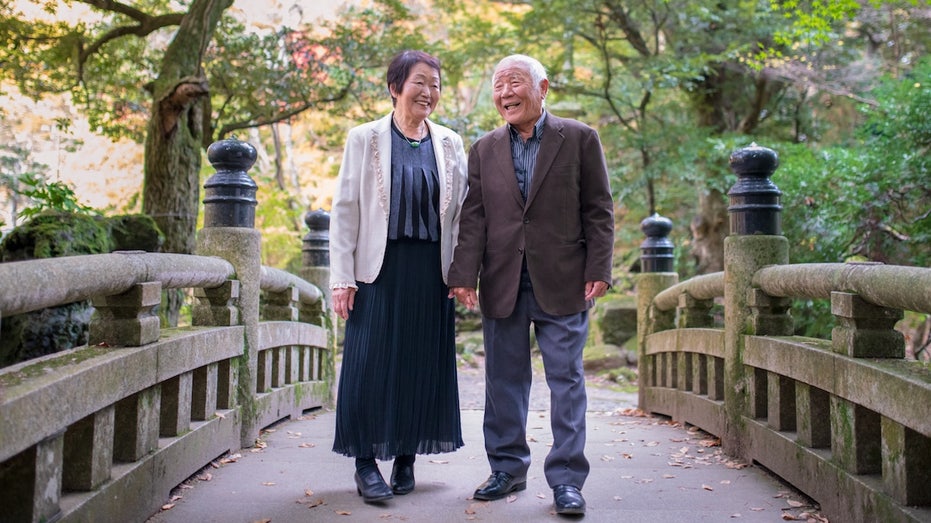Secrets of Longevity from the World's Blue Zones

Sarah Johnson
March 17, 2025
Brief
Discover the secrets of the world's 'blue zones,' where people regularly live beyond 100 through lifestyle, diet, community, purpose, and environment—lessons anyone can adopt for longevity.
The average life expectancy in the U.S. hovers around 78 years, but in certain parts of the world — the so-called "blue zones" — hitting the century mark seems almost effortless. These regions aren’t just about living longer; they’re about living better, with more healthy years to enjoy.
Dan Buettner, a Florida-based author, explorer, and longevity researcher, coined the term "blue zone" and has been on a mission to uncover their secrets. According to Buettner, only about 20% of your lifespan is dictated by genetics; the other 80% may just be influenced by lifestyle and environment.
For his Netflix documentary "Live to 100: Secrets of the Blue Zones," Buettner visited five locales: Okinawa, Japan; Sardinia, Italy; Ikaria, Greece; Nicoya, Costa Rica; and Loma Linda, California. These places boast the highest rates of centenarians — people living beyond 100 — and surprisingly, they don’t seem to be working too hard at it.
One startling observation? Residents in these areas have significantly lower rates of diseases that plague many Americans, like type 2 diabetes, cardiovascular disease, dementia, and even cancer. "They’re not dying prematurely," Buettner noted, adding that these populations live about 10 years longer than average in middle age.
In these blue zones, health isn’t a pursuit — it’s embedded into their daily lives. They walk everywhere, gathering an impressive 8,000 to 10,000 steps a day without needing a Fitbit to remind them. Their diets revolve around whole, unprocessed, plant-based foods, with meat appearing as a rare celebratory treat rather than a daily staple. Blue zone residents consume roughly 20 pounds of meat annually, compared to the 220 pounds the average American devours. Fiber also plays a starring role, coming from gardens filled with beans, whole grains, and other nutrient-packed staples.
It’s not just about food and movement. Purpose plays a key role in longevity. Studies show that waking up with a sense of purpose — whether it’s caring for the next generation, contributing to the community, or simply engaging with life meaningfully — leads to greater health outcomes. Buettner observed that blue zone residents often live in extended families, where Grandma isn’t banished to a retirement home but thrives upstairs, helping with gardening, cooking, and childcare. This interconnectedness fosters a "virtuous circle" where everyone benefits.
Another surprising longevity booster? Faith and community involvement. Data reveals that churchgoers live anywhere from four to 14 years longer than those who don’t participate in religious activities. Buettner attributes this to the strong social bonds and the stress-relieving effects of communal worship and prayer. (Bonus points for singing in the choir, which apparently adds even more years to your life.)
Sleep also gets a unique twist in blue zones. Residents often follow a two-sleep pattern, going to bed shortly after sunset, waking up pre-dawn for chores, then snoozing again until sunrise. And don’t underestimate the power of napping — a 20-minute nap five days a week is linked to lower rates of cardiovascular disease and mortality.
Buettner’s research emphasizes that anyone can adopt blue zone principles, no matter where they live. The key is shaping your environment so healthy choices become the easiest ones. "Blue zones give us a very clear set of choices and environmental factors that help us mindlessly get the years we deserve," he said. Whether you're in New York City or small-town Ohio, the lessons from these regions could transform your life — and maybe even add a decade or two to it.
Topics
Editor's Comments
What strikes me most about Buettner's findings is how effortless longevity seems in these blue zones — no fad diets, no obsessive fitness trackers, just a natural rhythm of life that keeps people thriving. Why do we make living well so hard when the answers are literally growing in a garden or walking down the street? Maybe it’s time we all took a leaf (or bean) out of their book.
Like this article? Share it with your friends!
If you find this article interesting, feel free to share it with your friends!
Thank you for your support! Sharing is the greatest encouragement for us.



